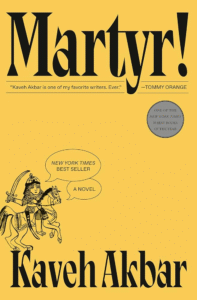Budgeting That Doesn’t Suck: Creating a Financial Plan You Can Actually Stick To
The mere mention of “budgeting” often conjures images of restrictive spreadsheets, endless self-deprivation, and the joyless tracking of every single rupee. For many, it’s a word synonymous with financial handcuffs, leading to a cycle of starting strong, feeling overwhelmed, and ultimately abandoning the effort. However, the true power of budgeting lies not in rigid control, but in cultivating sustainable spending habits that pave the way for genuine financial freedom. It’s about shifting the mindset from restriction to empowerment, transforming a daunting task into a dynamic tool for achieving one’s life goals.

Redefining the Purpose: From Restriction to Roadmap
The first step to a “budget that doesn’t suck” is to redefine its purpose. Instead of viewing it as a punitive measure, consider it a strategic roadmap. A budget is simply a plan for your money, a conscious decision about where your hard-earned income will go. This involves moving beyond a simple “income minus expenses” calculation and delving into a deeper understanding of your financial behavior. Start by tracking your expenses for a month or two, not to judge, but to gain clarity. This initial assessment reveals where your money is truly flowing – often exposing unconscious spending patterns that sabotage financial progress. Once you have this baseline, you can then differentiate between “needs” (rent, groceries, utilities) and “wants) (dining out, subscriptions, impulse buys). This clarity forms the foundation for making intentional choices rather than reactive ones.
Flexibility and Realism: The Keys to Sustainability
Crucially, an effective budget must be flexible and realistic. One of the most common pitfalls of traditional budgeting is setting overly aggressive or unsustainable targets, leading to burnout and eventual abandonment. Instead of trying to drastically cut expenses overnight, consider a more gradual, “step-down” approach. If you frequently dine out, try reducing it from three times a week to two, then to once. Small, consistent changes are far more likely to form lasting habits than drastic, temporary sacrifices. Methods like the 50/30/20 rule (50% for needs, 30% for wants, 20% for savings and debt repayment) offer a flexible framework that can be adjusted to individual circumstances. The goal is to create a plan that allows for enjoyment and “fun money,” preventing the feeling of deprivation that often leads to budget failure. After all, if your budget has zero breathing room for joy, it’s a recipe for impulse splurges.
Leveraging Psychology for Lasting Habits
Furthermore, leveraging the psychology of habit formation is paramount to sticking with a financial plan. Habits are built on a loop of cue, routine, and reward. For instance, the “cue” could be payday, the “routine” could be immediately transferring a portion of your income to savings, and the “reward” is the satisfaction of seeing your savings grow. Automating savings and bill payments is a powerful tool in this regard, turning good financial behavior into an effortless default. Digital budgeting apps can also play a significant role by providing real-time tracking, categorizing expenses, and offering visual insights into your spending, thus reinforcing positive habits. Regularly reviewing and adjusting your budget is also key; your financial situation and goals will evolve, and your budget should too.
Conclusion: Towards Financial Freedom
Ultimately, a “budget that doesn’t suck” is one that fosters sustainable spending habits and paves the way for financial freedom. It moves beyond the notion of mere restriction to embrace empowerment, conscious choice, and long-term goal achievement. By understanding where your money goes, setting realistic and flexible targets, and leveraging the power of habit formation, anyone can transform the often-dreaded task of budgeting into a powerful ally in their journey towards a secure and fulfilling financial future. It’s about making your money work for you, rather than feeling enslaved by it.




















